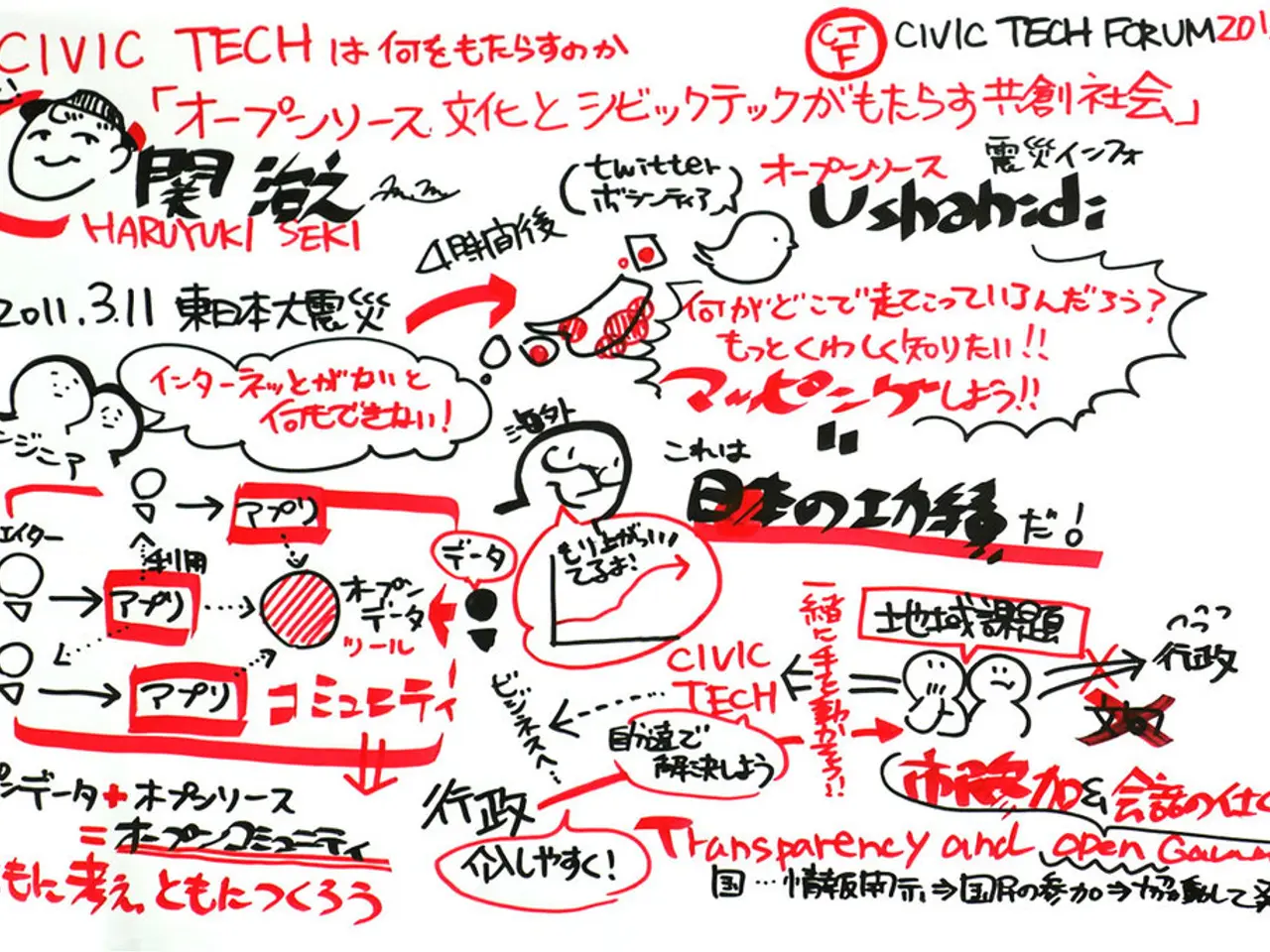Images generated by ChatGPT, resembling Studio Ghibli's artistic style, spark discussions about intellectual property rights
In the realm of artificial intelligence (AI), a new trend has emerged that has sparked much debate among artists, creators, and animation enthusiasts alike. The latest version of ChatGPT, an AI model, has been utilised to replicate the distinctive style of Studio Ghibli, the renowned Japanese animation studio known for its hand-drawn approach and whimsical storytelling.
This development, however, has not been met with universal approval. Hayao Miyazaki, the founder of Studio Ghibli, has expressed his skepticism about AI's role in animation, stating that he would never wish to incorporate such technology into his work. In 2016, Miyazaki expressed disgust towards AI animation demonstrations, finding them disturbing, particularly due to grotesque movements that the AI generated.
The Ghibli style has been applied to a variety of iconic images, including Yusuf Dikec, a Turkish pistol shooter, and the "Disaster Girl" meme. Even Janu Lingeswaran, an entrepreneur, used the new image generator tool to transform his 3-year-old cat's photo into the Ghibli style.
The trend has raised ethical concerns about artificial intelligence tools using copyrighted creative works and their potential impact on human artists' livelihoods. Josh Weigensberg, a partner at Pryor Cashman, questioned whether the AI model was trained on Studio Ghibli's work, raising the issue of copyright infringement. Artist Karla Ortiz, who is suing other AI image generators for copyright infringement, criticised OpenAI for exploiting artists' work.
The ethical dilemmas surrounding AI tools trained on copyrighted creative works mainly focus on the unauthorised use of creators' copyrighted material without permission or compensation. Courts are still debating whether using copyrighted creative works for AI training without permission constitutes copyright infringement or fair use.
Key concerns include copyright infringement and fair use ambiguity, impact on original artists, ownership and authorship ambiguities, and bias and ethical use. The potential economic harm to original artists, uncertain ownership of AI-generated pieces, and the broader implications of AI-generated art mimicking distinctive copyrighted styles like Ghibli's are significant issues.
In the specific case of Ghibli-style images generated by AI, the tool would have been trained on images influenced by copyrighted Ghibli works or fan art inspired by them, often without creators’ consent, leading to conflicts about whether generating such stylistic images amounts to improper use or infringement.
As of now, Studio Ghibli has not commented on the trend. OpenAI, the maker of ChatGPT, is currently fighting copyright lawsuits over its chatbot. OpenAI's CEO, Sam Altman, has encouraged the "Ghiblification" experiments, even changing his social media profile picture to a Ghibli-style portrait.
Miyazaki, now 84, considers the use of AI in animation an insult to life itself. His friend's struggle with disability, he argued, was a stark contrast to the AI-generated movements, which he found disrespectful.
As the debate continues, it is clear that the ethical implications of AI models mimicking distinctive copyrighted styles like Studio Ghibli's are far-reaching and complex, touching on issues of copyright infringement, artistic ownership, and the value of original creativity.
The use of artificial intelligence in replicating the distinctive style of Studio Ghibli has raised concerns about copyright infringement, as AI models might be trained on copyrighted works without permission or compensation, potentially impacting original artists' livelihoods.
The trend of incorporating AI technology into social media profiles, such as OpenAI's CEO changing his profile picture to a Ghibli-style portrait, highlights the broader implications and ongoing ethical debates surrounding the role of AI in the entertainment industry.




